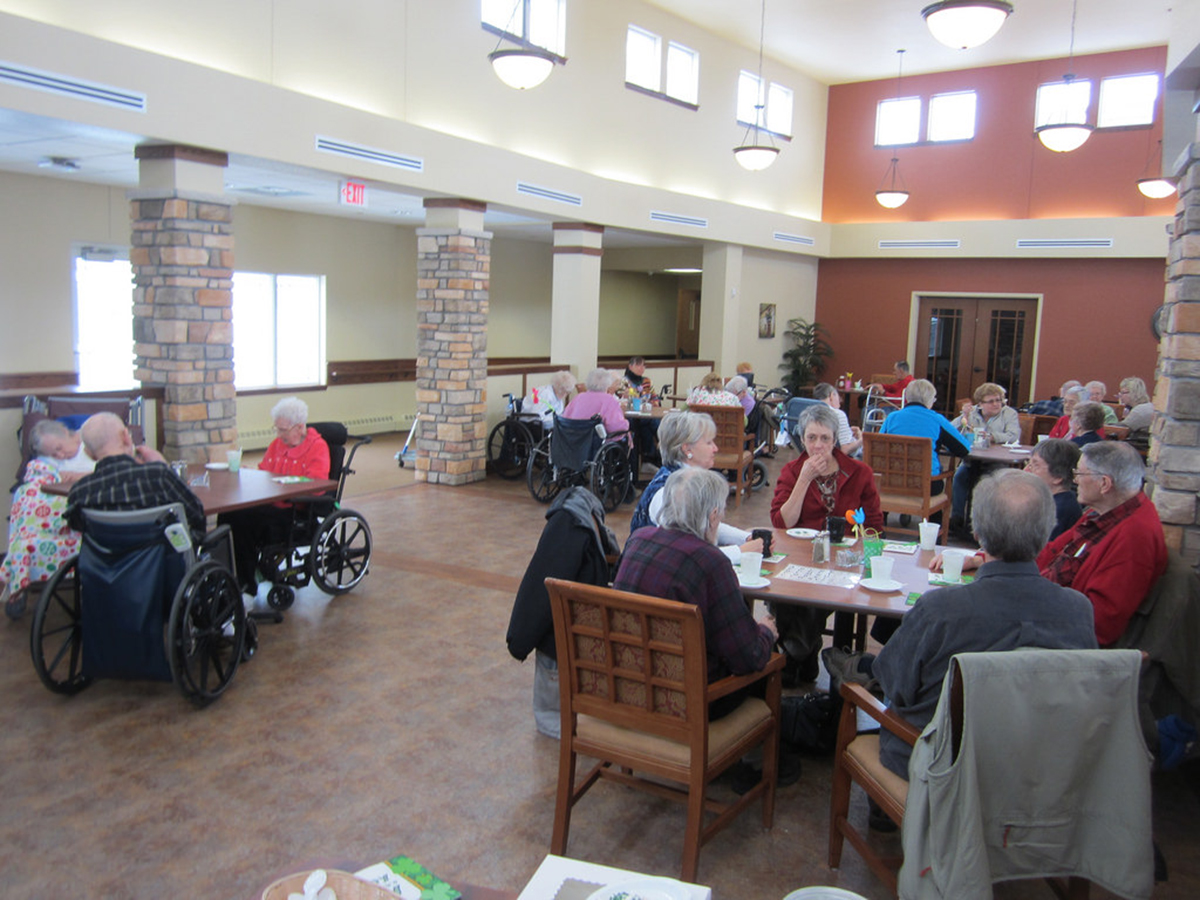My parents had been struggling with a wide array of health issues — including several bouts of cancer, hip replacement, and thyroid operations — when they came to the conclusion that living independently was becoming too hard. Though my sisters and I constantly visited them and helped them with their housework, they could no longer cope in their eighties. Still sound of mind, they simply decided that it was time to look into retirement homes.

Not being nearly as mobile as they once were, they asked us kids to look at various places. Together, we decided on a retirement home, and they moved in when a place became available. Though downsizing their belongings to fit into the comparatively very large two-bedroom senior apartment that would become their next home was sad, my parents made this decision on their own. It was a semi-independent retirement home in which nursing staff was available around the clock, and meals would be delivered to them. They did what they believed was best for them.
We were lucky. Almost two-thirds of adults who "send" their elderly parents into a care home feel guilty about that decision, research shows. As life expectancy is increasing, so is the kind of dilemma in which adult children — usually in their fifties — ask themselves who can best meet the needs of their aging parents, and where.
Whereas multi-generational living was the norm until recently, today's generation of adults with ailing and elderly parents is different. With increased numbers of women working outside the home, who's there to tend to elders full-time?
Should it, though? As an active caregiver in your elderly parents' lives, there are plenty of reasons why you need not feel guilt for outsourcing those parts of their care you can't be responsible for yourself. If you are consumed by guilt regardless, here are some tips to help.
Why Are You Feeling Guilty?
Curious how other people approached the topic of experiencing guilt after parents move into a retirement home, I did some Googling. Plenty of "touchy-feely" articles show up, articles that call on people whose parents have recently made their moves to:
- Examine the reasons behind their guilt
- Have compassion for themselves
- Reach out to others in similar circumstances
- Detach from being the primary caregiver in your parents' lives
READ You're Lucky If You Grow Old
Though dealing with your own emotions is certainly very important, I'm a more practically-minded person. I assume that your parents either decided to move into a retirement home on their own, like mine did, or that you knew you didn't have the capacity of looking after them at home. In the first case, guilt should be redundant. If you don't have a downstairs bathroom, all adults in your home are working full-time or beyond, you're not physically equipped to deal with ailing parents, or have other practical reasons for which you're not able to look after your parents yourself around the clock, the same holds true.
Still Feeling Guilty For 'Sending' Your Parents To A Nursing Home?
Help Your Parents Research Nursing Homes
My parents' retirement home was a semi-independent senior home. Couples could be cared for together. Elders had their own kitchen units in their homes, and had a living area as well as a bedroom — sometimes even two. A nurse would show up at the press of a button, as well as at predetermined hours, and those who needed meals delivered to them three times a day received that. Management organized all kinds of activities, from dance to pottery to religious services, and though elders could have all the privacy they wanted, lonely people could eat in a communal hall.

Not all nursing homes — and not all nursing homes my sisters and I looked at — are like that. If your parents are at the point where they can no longer live independently, chances are they can't research nursing homes adequately either. Help them learn as much about all the homes in their area as you can, and help them choose the right place for them.
Be There For Your Parents
I have two sisters. Between the three of us, someone visited my parents every single day — before they moved into their retirement home, and after too. Being increasingly immobile is hard. After my dad died, my mom had a hard time adjusting. We helped her connect with same-age relatives and old friends, took her out in her wheelchair, cleaned her unit, and spent time chatting with her.
My parents weren't abandoned elders stuck in a nursing home from hell. If your approach is similar, and your parents are living a full life with your help, there is absolutely nothing to feel guilty about!
Advocate For Your Parents
I live in the Netherlands, where nursing care is excellent. Even so, my mother, after my dad died, encountered a nurse who was rude to her, one who treated her as an infant and not the experienced and wise elder that she was. Others experience far worse — elder abuse is not uncommon within nursing homes. Therefore, you can play a powerful role both in investigating the ethical standards of a retirement home before your parents move in, and standing up for your parents when issues occur.
READ How To Keep An Eye On Your Family Member In A Nursing Home
Notify management if your parents encounter issues with a particular person, or if a policy is not working for them. In the worst case, consider moving your parents to a different home. My mom was too modest to stand up for herself — but my sisters and I weren't afraid to do it in her stead, and the issue she had was resolved. You may not be able to care for your parents full-time, but by being their advocate, you are fulfilling an incredibly important role.
- Photo courtesy of picturesbyann: www.flickr.com/photos/picturesbyann/12456887264/
- Infographic by SteadyHealth.com


Your thoughts on this